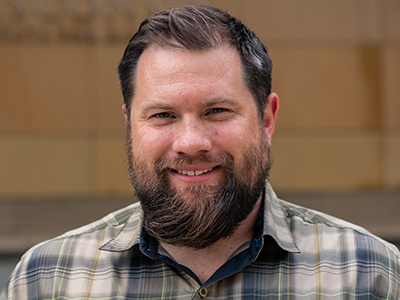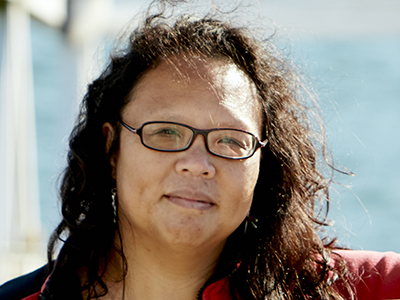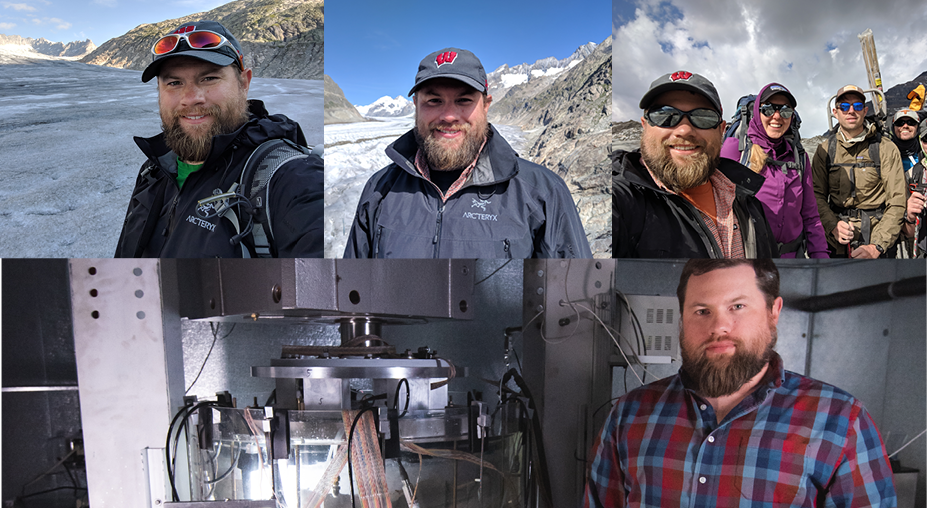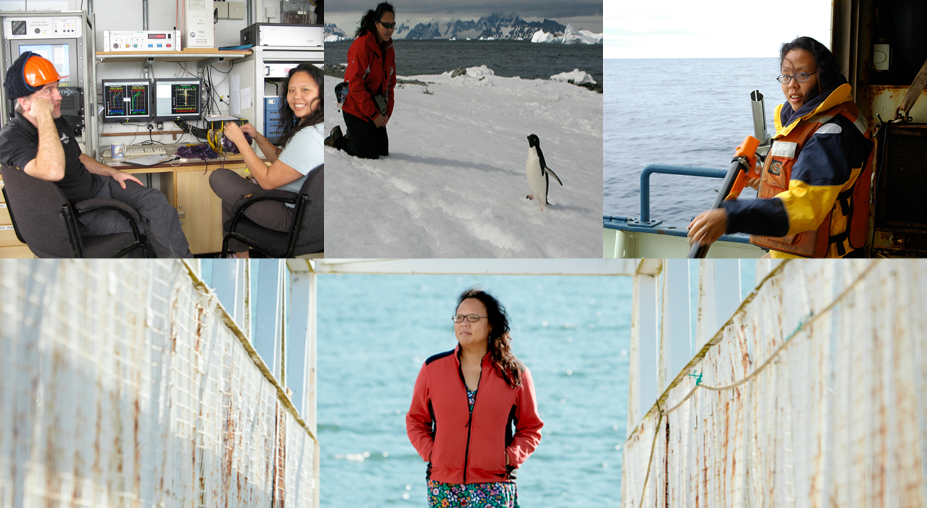Cryosphere Sciences Awardees

Citation
Lucas (Luke) Zoet conducts innovative laboratory experiments that are targeted toward developing the quantitative understanding of basal mechanical interactions that is essential for process-based descriptions of glacier behavior. He delves deeply into the problems he examines, producing important data sets and insightful interpretations. Luke leads an active group that attracts mentees from a broad range of backgrounds, and he has assembled a productive laboratory with capabilities that are unmatched worldwide.
Highlights from the work of Luke and his collaborators include (1) the first empirical demonstration that a common “sliding law” that was developed to describe slip over bedrock is also applicable over the unconsolidated beds that host the fastest ice flow; (2) confirmation that stick-slip instabilities observed along glacier soles can be accurately described using the same constitutive rate-and-state friction laws that are standard model components for capturing transient behavior along tectonic faults (e.g., earthquakes, creeping, episodic tremor, and slip); and (3) laboratory measurements of till transport in dilated shear bands quantifying the direct dependence of till flux on slip speed, and a nonmonotonic response to effective stress.
Complementing these important experimental achievements, Luke has also demonstrated his talents and insights through the well-planned collection of novel field data sets, the careful interpretation of noisy remote sensing signals, and the application of numerical techniques to model glaciological and cold-region geotechnical processes. Alongside his impressive scientific contributions, Luke deserves recognition as well for his extensive professional and community service efforts, his mentorship of diverse graduate and undergraduate students, and his outreach to communities that share his indigenous heritage.
Recognition of these accomplishments with the Cryosphere Early Career Award is richly deserved.
—Alan Rempel, Department of Earth Sciences, University of Oregon, Eugene; and Bernard Hallet, Quaternary Research Center, University of Washington, Seattle
Response
I am deeply honored to receive this award and thankful to Alan, Bernard, Leigh, and Christine for putting forth the nomination. I am also thankful to my family, mentors, colleagues, and students who have contributed so many fruitful ideas and made the experience incredibly fun. I’m indebted to my Ph.D. adviser, Sridhar Anandakrishnan, who gave me the latitude to move into areas that were not well defined and it was unclear whether I could make any progress. Richard Alley always pushed me to ask how things worked, and Neal Iverson showed me many ways to try and address the questions.
Examining the physical processes of the cryosphere has been the central focus of my studies. It’s my view that constraining the underlying physical mechanisms that drive large-scale phenomena is essential for making accurate predictions. To investigate these processes, I’ve taken concepts and techniques from many other fields and tried to apply them to the cryosphere. In addition, I think there is much to be gained by linking glaciological processes with the glacial landscapes they produce, but possibly even more to be learned by using glacial landscapes to constrain glaciological processes.
I’m excited by the path glaciology is on. It seems like people are continually coming up with new and clever ways to measure something in the field or model an important process. The cumulative impact of these works is ever improving the predictive capabilities of the cryosphere, and the field is moving ahead in stimulating ways.
I’ve lived most of my life in the footprint of the Laurentide Ice Sheet. The way it has shaped the landscape and thereby the communities that live in its footprint has always had a profound effect on me. I’ve worked to develop reciprocal relationships with these communities knowing that the scientific community can learn from groups who are closely tied to these landscapes but who may traditionally not have had representation in scientific communities.
—Luke Zoet, University of Wisconsin–Madison
Field Photos


